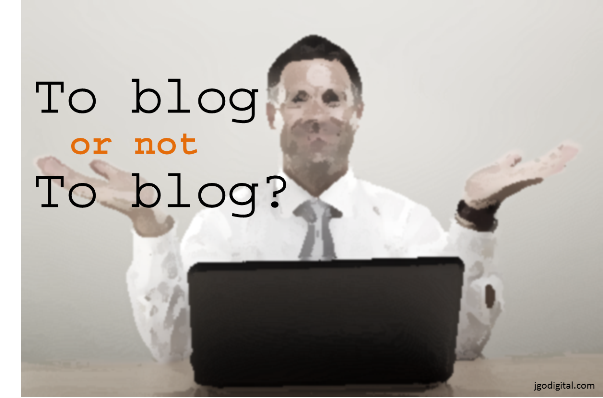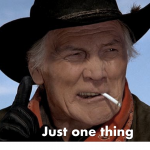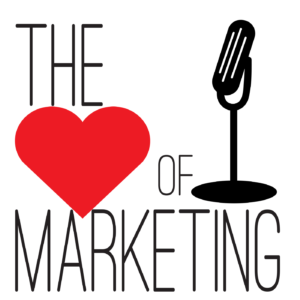You have to wonder.
Has business blogging peaked? At last count, there were more than 75 million WordPress blogs and 170 million Tumblr blogs. And that’s not counting all the other blogging platforms out there.
It makes you think.
With all that noise from all those blogs, will it make any difference to my business if I blog or not?
It’s tempting to just let it pass and avoid the time and effort of blogging. After all, the internet is strewn with dead blogs nobody reads. Why add to the carnage?
That’s the dilemma of many midsized companies that are wondering if they should launch a blog or revive a dormant blog today. And that is the topic of this episode of The Heart of Marketing podcast.
Join me and Jayme Soulati as we crack the code on where a business blog fits into your content strategy and how to create messaging that makes a heart connection with your readers. Along the way you’ll also discover:
- Five key business benefits of blogging
- How a blog fuels your social media strategy
- Where most new business blogs fail
- The business objective that determines the success or failure of your blog
- The long term effect of blogging on business development
- The blog messaging technique that grabs the intellectual and emotional brain of readers
- And a lot more
004: Business Blogging: The Heart and Soul of Marketing Content
Show notes
John: Hey, thanks for joining us today for another episode of the Heart of Marketing. I'm John Gregory Olson, with my rock hot co-host, Jayme Soulati.
Jayme: [laughter] I so love the fact that you introduce me as rock hot because I tell everybody else that they're rock hot, so I like being rock hot, John.
John: You have you set the example...
Jayme: I try to do that every day in my life. John, what are we talking about today?
John: We are talking about a topic that is near and both you and I, and that is the subject of blogging and how to make heart connections with your blog. A couple of the things that we'll be zeroing in on: is a blog still important in 2015? And then, how to get your messaging right. Those are the two big points in our outline for the topic. But before we get started, Jayme, I know that you've been doing some interesting reading lately, and you have something to share.
Jayme: I do. I am disturbed-- in fact, I'm reeling from what I've been reading, and I want to share three citations for folks to ponder. The first one was earlier this week when I saw that the security guys were monitoring license plates of vehicles so that they could engage with drug traffickers, etc. So that was one interesting thing. I have an auto collision center client, so I'm more aware of what happens in the auto industry. Then I got to seeing the Forbes magazine that just came out, the February 9th issue. I read it cover-to-cover in the last few days, and the human guinea pig is one of the stories that I'm blown away by. What's happening, John, is that the human body is becoming the next playground for apps and disrupted technology, which we addressed in episode two. And of course today, the third item, is the Wall Street Journal. Today is January 29th. Today there's a story, a meta-story, on - let me read the headline for you - "The Technology that Unmasks Your Hidden Emotions." On their subhead here, "Using psychology and facial recognition software to study people as they shop, watch ads, is breeding privacy fears." Essentially the data mining of emotions. All these few things together - the second one, the human guinea pig story in Forbes is oriented to using the human body as study subjects for sleep patterns and exercise routines, and companies that are self-insuring their employees are able to nudge someone off the couch to say, "Get to the gym. And if you do and work out, you'll get five bucks off your health premium next month," sort of a thing.
John: Hmm.
Jayme: What's disturbing to me is, I sit there in front of a kiosk sometime at a store, John, looking at a product. And if I can't understand the marketing, yeah, my face gets all quirked up because I have an expressive face anyway. You pretty much know what I'm thinking just by looking at me.
John: Yeah.
Jayme: If they're going to have a hidden camera watching my reaction to some display ad or kiosk or digital display, well, I'm a prime subject, and it really bothers me that-- do we all need to now fear what's happening around us without our knowledge?
John: Yeah, it's walking that fine line between market research and invasion of privacy.
Jayme: Absolutely. And what are the answers?
John: It's an ethical question for a lot of companies and for consumers to be thinking about. When you agree to download an app, what you're giving up, you need to be aware of that.
Jayme: Right. I think people need to think differently. I think our kids need to think differently. Teaching our children ... you know I have a 13-year-old, and I don't allow her to have a Facebook or Instagram page or Pinterest or anything like that or Twitter. I'm sure that's coming soon. She's going to start asking for it, but I've been teaching her about security and privacy for some time. It's just a matter of will that continue as she gets further along in her teenage years. It's kind of troublesome to me, as a parent, to worry about protecting my child's privacy.
John: Well, as a marketer, I find the last one you shared the most interesting in terms of trying to figure out the emotional impact of your messaging on your target audience, who you're intending to reach. Because that's a lot of what we're about here at the Heart of Marketing, how to make that human connection. To me, that's what piqued my interest when you said, "Oh, I read this. I want to share." We're going to be touching on that a little bit today, in a different context. We're going to be touching on that in terms of how to be effective with your business blog. But, Jayme, before we get into that, let's spend a couple minutes talking about our February promotion.
Jayme: Love it. Love it. Go ahead. Let everybody know.
John. Okay, we are launching The Heart of Marketing in February, which is Heart Month, coincidentally enough. And so, we thought we would like to lend our support and have you help us lend your support to the American Heart Association. We are donating a dollar for the first 500 subscribers to the Heart of Marketing podcast who subscribe in the month of February. By just the simple act of subscribing, you are lending your support to the American Heart Association. So, if you want to do a good deed and plug into our regular podcast, there's no better way.
Jayme: I totally agree. Let's not forget Valentine's Day and Jayme's birthday, darn it! Jayme's birthday was six minutes before Valentine's Day and when Mom - so many umpteen thousand decades ago - asked the nurse, "Can I just say, your Valentine's ... " They were appalled. They were agog. They were aghast that my mother even thought to ask, "Could I change her birthday?" [laughter] Having a birthday before Valentine's Day hasn't helped me throughout my life, John, so it doesn't really matter if I was born on the 14th or the 13th. I had no advantage. I get a birthday present and a Valentine's gift once or twice in my life, so... Anyway, let's move on.
John: Okay, as I mentioned our topic today is: Making Heart Connections With Your Blog. The first part that that we want to talk about is, is a blog still relevant or important today, anymore? Jayme, I know you've got an opinion.
Jayme: Since when do I not have an opinion? [laughter] Oh my God. That's a loaded question.
John: Lay it on us.
Jayme: “I know you have an opinion, Jayme.”
John: I'm kind of egging you on, here.
Jayme: Oh, I know you are. You're doing a good job of it. Let me just give a little back story. I have been blogging since 2010, and I'll tell you what, the barrier to entry for a blog is not as high as the barrier to entry for a podcast, I believe. So, now that I've done both, I can tell you honestly to jump into blogging first before you podcast. So, 2010, so that's like five years of solid blogging with a little bit of a hiatus in the last six months, for sure. I'll tell you what, the blog for me, totally solidified my brand. It helped create my brand, empower it and it made me an influencer. Now, did I do things wrong? Of course, but you have to fail before you succeed and in my book, the blog was a total success. Why it's important? Well, John, before I jump into that, tell me about your blogging experience.
John: I started out with a WordPress blog platform on the free WordPress site. My journey was interesting because at the time I was in a job search mode. So, I wanted to use the blog as a place to show my knowledge of the industry and publish what I know, get the attention of hiring managers and recruiters. As I was blogging, I was evolving. I was like you were saying, you make mistakes, you learn, you develop the skills that you need to be good at it. Along the way... and I was on that for about a year, I suppose, of just kind of stream of consciousness. I didn't have a really good focus because I was writing about leadership. I was writing about marketing strategy. I kind of had multiple audiences in mind. I didn't have a lot of clear focus, but it was a great training ground for me. About a year after that, shortly after I met you, you gave me the big lecture about getting off of rented space.
Jayme: What does that mean, exactly, rented space? What are you talking about?
John: The free WordPress platform, you don't own the URL or the domain name. They can do whatever they want with your content. They can slap advertising on there. It's just very limited, what you can do with the formatting. So, I made the transition after about a year to getting my own domain name - JGODigital.com - and building a brand new blog from the ground up. It was great experience though that I had been using WordPress.com as my training ground because when it came time to build my real blog, I had just learned so much more. I could better focus. So, that's been my journey. My new blog has been going for just over a year now.
Jayme. That's awesome. I think I can speak for both of us here: we have found the blogging journey so very rewarding for our brands and our authority. I'd like to note that while we are solo practitioners in our fields and many bloggers are individuals, it's a huge benefit for anybody who's an individual to stand up and write a blog. For mid-tier companies, that's not far off as an objective. There are solid reasons for companies to be blogging. One, for sure, is to solidify the brand. If you have poor brand awareness in the marketplace amongst customers, prospects, or peers, then for sure a blog is going to help you leverage the authority you have inside your company. Do you agree, John?
John: I do. There are a number of other great benefits for blogging. There's been some discussion about, "Have we reached peak blog?" with people within the digital marketing industry. But, I think there remains so many benefits to continue blogging. And if you haven't started one, to start. Because like you said, Jayme, building your brand, building your credibility with your market. It's also a place where you can create content that you can then share on the social platforms that you participate on. So, you have an owned media place - your website, your blog - and then you have the rented places where you have your visibility to the different social media platforms and stuff. The blog is your place to create your own original content and then share it out to the world.
Jayme: Totally agree. It really fuels... the blog is your core, the very core of your content marketing strategy. Without the blog, there's really nothing for you to share of your own on social channels. Blogging is labeled part of social media. However, to me it carries a little different weight than a post on Twitter or Facebook.
John: Yes.
Jayme: I think you're agreeing with me for sure.
John: I do.
Jayme: We can't assume here, John, that people are just starting a blog. I think we should assume too that we've got a bunch of folks who are interested and, "Well, I've got this blog and it's kind of been dormant. I'm not real thrilled with what I've been doing on it lately as a marketer in my company. Then maybe what should we do to beef it up and energize that blog a bit?" Should we talk a little bit about some content suggestions, or some areas that a blog can be infused with some energy, John?
John: Oh, definitely. Yeah, there's a lot that we can do with our blogs. For me, it all starts with defining your business objectives and your niche. It's the strategy piece. At the Heart of Marketing here, we talk a lot about making human connections, tapping into human emotions, making your marketing human. That's an important part of what we focus on here. But there's a second pillar to the Heart of Marketing, and that's strategy. It's the core of everything you do. That starts with your blog and everything else. I think before you start trying to figure out all of these technical things that you can do, you've got to really zero in on what are you trying to accomplish with your blog. What are your major objectives? Because they're going to be different for different businesses.
Jayme: I think you raise a great point. Let's try to tick off five things that are the core of a blog before you even start writing, John. I'd like to mention... try, to summarize, those rather quickly so we can move to really cool stuff. But the strategy for the blog. Why launch, why continue a blog? That's part of your business goal for the blog. What do you want it to accomplish and what are your objectives? Who is your audience, who are you writing for? Is it merely a microphone to amplify your own company's message and it's a one-way street out the door or are you willing and eager, to engage those in your space to come to your blog and be enriched by what you're writing about? So, the...
John: And I would like to answer that question, Jayme.
Jayme: Yeah, sure. Please, go ahead.
John: I think if you start out with the objective that you want to broadcast out to the world, you're not going to see much success in your blog. You really have to have your audience at the center. You have to know who they are as best you can. Not just their demographics but things about what drives them. What is their lifestyle like? There's a lot of talk in the content marketing world about developing personas, and that's something that Jayme and I have had some conversations about back and forth. It can be kind of a...
Jayme: Pain in the butt?
John: ... A pain in the butt and viewed as a squishy kind of an exercise too. Which I think is a mistake. You need to get to know your audience on as many levels as possible so that you can write to them in a way that appeals to their interests.
Jayme: There's a successful blogger we all know and love in our midst, John. Gini Dietrich, who is a pal of mine. I love her to pieces. Back in the day, her blog was really... it's called Spin Sucks, and the community she's built is so tremendously huge. And I watched her morph into really defining her audience. She decided to write strictly for the PR world and to teach them all there was to know about PR. And mostly, not necessarily entry level folks but really, the basics of PR. And you know what? She's done a great job, and she actually started to monetize her blog too. The reason I bring her up is because I was there at the ground level with her. I helped her proof her website, Spin Sucks Pro, that you subscribe to. She developed a gate and a community of subscribers to her content and her products. So that is a success story, in and of itself, that people can emulate with their own blogs. If you are developing content that is fueling your funnel and you know the persona you're writing for, then you're farther along than most bloggers. I think in companies... I don't know, would you agree to this, John? In companies, I think the blog is relegated to the bottom of the rung and I would hope that this conversation we're having today can help people push that blog a little higher in the channel of priority because blogging can do so much and get you so much reward in your company.
John: Yeah. I think there's a lot of truth to what you're saying. Companies are still trying to figure out what is the value of this and how to allocate resources to it. So, when they're first starting, they want to start out real slow. So they maybe hand it off to a junior person, maybe an administrative person, depending upon their organization. That gets you off to a slow start because you need to be serious about it. If you're going to go into it, you can't go in half-way because what'll happen is, you'll be disappointed with the results right away and then you'll give up on it. You have to really stick with it. You have to have the plan, and part of your plan is, "How are we going to execute this?"
Jayme: Makes sense. I mean, the other things is too, don't relegate the blog to an administrative assistant who may not have confidence in writing or a voice. That's the thing about blogging; you need a voice. I've written several really important pieces on how to find your voice as a blogger. And that's one of the biggest challenges a blogger has. When I say a blogger, I mean a company's blog or anybody writing for a blog. If you relegate the blog to five or ten different people, your voice is going to be skewed, and it won't be powerful. So, the consistency and the frequency are very important tips for anybody running a blog. Two to three times a week is the best frequency. Three is really the best to get traction. And, the voice to have a similar style and format would be very helpful for your readers because you want them to know what to expect when they come visiting.
John: One of the things you can do to help enable that is to have guidelines, editorial guidelines, that include your voice and style for writing. So that when you do have multiple people contributing, they're all working from the same playbook.
Jayme: That's very cool. My style as a blogger was always to pick out some of these key national media pieces that I mentioned in today's start of our episode, John. And kind of recount what's going on in the story, what's the current news trend, and then give a personal opinion about it and then to close the blog, give my tips list. If it's seven ways or five tips or ten tips to do blah, then hopefully somebody could walk away with a how-to or an idea for their own implementation.
John: That opens the door to a discussion on storytelling in your blogging. Which is a very important element to engaging people, is how you write and structure a post. There are many ways to do that, but the ultimate is telling your story. Ann Handley, in her recent book, Everybody Writes... Have you read that one?
Jayme: I have not.
John: Great book. She says, "Storytelling is telling a true story well." So there's an element of truth to it, and there are ways that you can incorporate storytelling into your blog writing. This sounds so basic, but a lot of the blogs that you read out there don't even follow the basic structure of storytelling. Which is: you have an introduction, you have the supporting paragraphs, and you have a conclusion. Duh, right? But you see that missing in so many blogs out there where people just kind of vomit out their prose.
Jayme: And I think those are the bloggers, the "bloggers", who are SEO juicing. And we probably need to mention the SEO aspects of blogging. Obviously, I got in trouble because I had no rhyme or reason in the keyword aspects of what I was writing about. I knew that I was writing to be an influencer and an authority, which I became rather quickly, based on what I was writing about. However, Google was having a hard time pegging me into a message mapping expert. So, I talked to some of the experts that I hired, and they said, "Jayme, you're just all over the board, and you're writing about whatever strikes you." I said, "Yeah, absolutely. That's what I love to do. You can't put me in a box." But then I realized, "Okay, if I am going to get found online for message mapping, which is what I do and writing content, I'm going to have to kind of put those keywords in my blog title." But the people who are the pirates of SEO juice, those are the ones who are taking content from others' really unique and original material and pirating and putting that into an article for SEO juice. One thing I want to mention is that blogging does have heart and we are the Heart of Marketing. And both John and I are very authentic and genuine bloggers. And we've built our brands on that trusted authority. It doesn't have to be only about data analytics regarding your blog. It can be about having heart.
John: Yes. And there's a couple of things that you can keep in mind as you're producing a post. The statistics in the data are important pieces of it, but they're just one piece. What you really want to do is, you want to engage both the emotional and the intellectual brain of your reader. So, that's where the data and the statistics come in. But if that's all that you have, you're not going to grab...
Jayme: What you just said makes me also want to say something about selling. A blog is not a place to sell. You can sell a concept. You can sell a program. You can announce something new that requires somebody to buy something. And yes, we who do public relations agency work, we are hired by clients and they do want us to write about their programs on our blogs. It's called full disclosure. So, any time you are selling on behalf of a client, you've got to put that FCC regulation statement on full disclosure saying that, "This is a client. I have been sponsored to write this blog post. I am being paid to write this blog post." Then you're clear. Then you're legal. But if you are going to, as a company, just constantly feature your products for sale in your blog, then you just will not get any traction or interest at all from people.
John: No. And that's really at the heart, or the core, of content marketing, in general. It's not about sales messages. People avoid advertising at all cost. There's so many ways that they can do that now with technology and DVRs. You can fast-forward through ads of recorded programs and satellite radio, you can avoid advertising altogether. People just... they don't want those messages. They're not of value to them. And what content that you create needs to avoid, you need to avoid the temptation of starting to over-promote. You can tell your story in ways that are compelling, that add value to your readers, and then what you do in the course of that is you build your credibility, you build trust and likeability. Over the course of time, you establish a relationship where when they're ready and decide, "Okay, I'm ready to buy something. I know about these people because I've been reading their stuff. And now I want to move into that kind of a relationship."
Jayme: That is very valid. I think that kind of boils down to what you talked about at top of the hour, John, is the messaging in your blog, how important messaging is, and getting to the heart of the message. I think those are the things... we really touched on many things about blogging, but I have to say one final thing, from my view, is subscribers and the list. A blog can help you fuel email marketing. You can build your company's list via your blog. There are many ways to engage readers interactively via your blog and obviously having a great comment system is ideal. I love LiveFyre. It's my favorite. I've used several. Each works fine, but I love LiveFyre for what it offers and for the support it offers too. For me, John, monetizing a blog, that's kind of still a myth. There's a lot of effort that has to go into making money off your blog. But if you don't start, and you're not consistent and you don't heed some of the ideas we've shared here today, then you probably don't even have a chance to monetize your blog. John, have you monetized? Have you been able to earn some dollars off your blog?
John: No. That's not a focus of my strategy right now at this point. I was going to say, when you were talking about monetization, that that comes down to our starting point for what your business objectives are for your blog. A lot of companies that I'm more inclined to work with are not looking to start another revenue stream with a blog. They have their business model. They want to create a lead gen funnel. They want to create brand awareness and visibility with their blog. They're not looking to sell advertising or other kinds of products like other bloggers, like maybe sole entrepreneurs that are looking to blog as a place for their income. You're looking at two sets of business objectives there. I'm not in that latter camp; I'm more in the building awareness camp right now. That could change.
Jayme: I have to say, I never had that objective either, to monetize. I just love, love, love blogging and how it feels and how it engages me with others. But, in the last six months I have received two new clients as a result of blog posts I've written in the last two years. So that to me, is pure monetization where you least expect it. It wasn't my goal. I'm happy to have attributed those new sources of revenue to my blogging history, which makes me very happy.
John: I think that raises a really good point for the listeners to be thinking about as well, with your blogging strategies. Think of it as a long-term strategy. That post that you write today may not give you an immediate response but in six months or further down the road, people might still discover you through search, and it could still result. They have a long shelf life. That's one of the other benefits of blogging. The content that you create, it sits out there, forever. It's not like an ad that you place and in 30 seconds it's gone. It's always out there. Jayme's testimony there is a good one about the value of that long game thinking.
Jayme: Totally have to agree. Well, we are both available to anybody interested in learning more about blogging or fueling content or creating that content with a twist. We're very creative when it comes to ideas to generate new ways to communicate with an audience or to build an audience. That's how I'd like to wrap it up, is just to say that Jayme and John both are professional bloggers, and we are accessible for questions, and do write in if you do want to ask us a question, and we will cover it in another episode.
John: Well, that's our show for today. Jayme, want to take us home?
Jayme: Go be rock hot, guys. See you soon.
John: Until next time, remember: Go for the heart. You won't go wrong.
Announcer: Thanks for listening to the Heart of Marketing podcast with Jayme Soulati and John Gregory Olson. Don't miss our next program. Subscribe to the Heart of Marketing podcast today.












Blogging is always good for a business. But it’s very important to keep your content relevant.
And all the dead blogs that doesn’t work are good for linkbuilding.
It’s always relevant for a business to manage a blog. New content means that your business is scoring higher on Google pagerank.